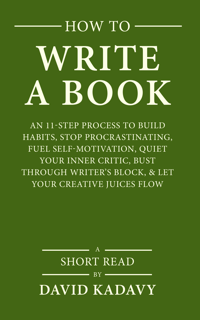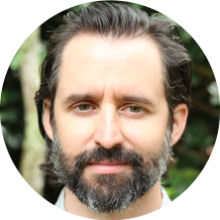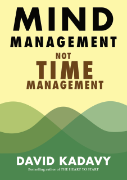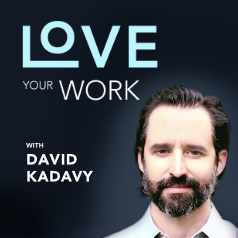Subscribe to blog updates via email »
Why I’m meditating 300 hours

I’ve now made it an explicit goal to meditate 300 hours in 2025. I’m halfway there. I’ve meditated 150 hours: An hour a day for 146 straight days, plus 4 additional hours.
You might think I’m on some kind of sabbatical, but I consider my one-hour meditation session a part of my workday. Spending so much time meditating actually makes me more productive.

WANT TO WRITE A BOOK?
Download your FREE copy of How to Write a Book »
(for a limited time)
Some people think it’s sacrilegious to use meditation as a means to an end, but I have no shame about using meditation as a tool.
Meditation is an information fast
For one, meditation is becoming practically a requirement for survival in our world. With the amount of information we encounter every day, and the speed at which we can use technology tools to do things, it’s crazy to not take a good chunk of time for silence, and let your brain de-frag.
As Sapiens author, Yuval Noah Harari, who meditates two hours a day, says:
Information is the food of the mind, and the same way that people have food diets, they need information diets…. A very important part of any information diet is to have periods of fasting. —Yuval Noah Harari
As an author, meditation is for me increasingly crucial to doing the job of noticing contradictions and ironies, thinking clearly, and putting my thoughts into words.
Meditation is a productivity tool
If someone thinks meditation is a sacred activity that shouldn’t be perverted for productivity, they probably have the wrong definition of productivity. Somehow over recent years productivity has gotten a bad rap – it’s equivocated with optimizing your calendar and getting to inbox zero so you can chase a hollow definition of achievement and accumulate material things.
I think that making something through true alignment with your curiosities and creative energy is a beautiful thing. My curiosity has been my north star since day one on my own eighteen years ago, and meditation helps clear the clouds and light pollution from the night sky.
Meditation has led to one of my biggest ideas
Before doing this 300-hour challenge, I’ve done Naval Ravikant’s meditation challenge – 60 hours in 60 days – three times.
The first time I did it, there was one idea that kept coming back to me – to write a short book about an obscure note-taking methodology. Normally, I would have ignored that idea, writing it off as silly, a waste of time, and not as high a priority of all the other things I needed to get done.
But because I was spending an hour a day meditating, the idea had more room to grow. It eventually took up enough mental space that I had to pursue it. So I wrote the book, and Digital Zettelkasten turned into a surprise hit, which has now sold something like 20,000 copies, and been translated into multiple languages. Writing the book has also improved how I read and take notes using the method, thus deepening my connection with my curiosity.
Meditation is a judgement multiplier
In a world where anyone can create anything in a click, your judgement matters more than ever. Meditation is a sort of barbell strategy for life. Staring at your computer screen trying to decide what to do next is a waste. Either be in quiet contemplation, or taking decisive action.
The way people tend to work most effectively, especially in knowledge work, is to sprint as hard as they can while they feel inspired to work, and then rest. They take long breaks. It’s more like a lion hunting and less like a marathoner running. —Naval Ravikant
I also find that meditation prevents me from seizing upon an idea the moment I have it. After decades as a creator, my ability to follow-through on things has actually become a liability. If I start something, I’ll finish it, whether I should or not. Meditation forces me to spend less time taking action, and more considering whether it should be taken at all.
Not everyone is a writer who can benefit as much as I can from an hour a day of meditation. If you can get fifteen minutes, ten, even two, that’s fantastic. But I strongly encourage you to be ambitious about how much time you spend meditating. It’s okay to admit, it’s a valuable thing.


